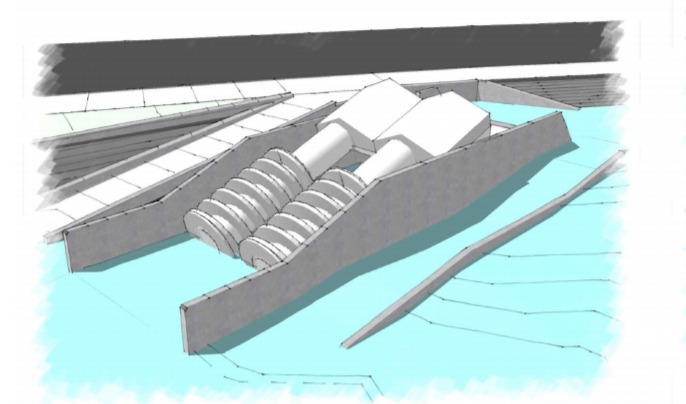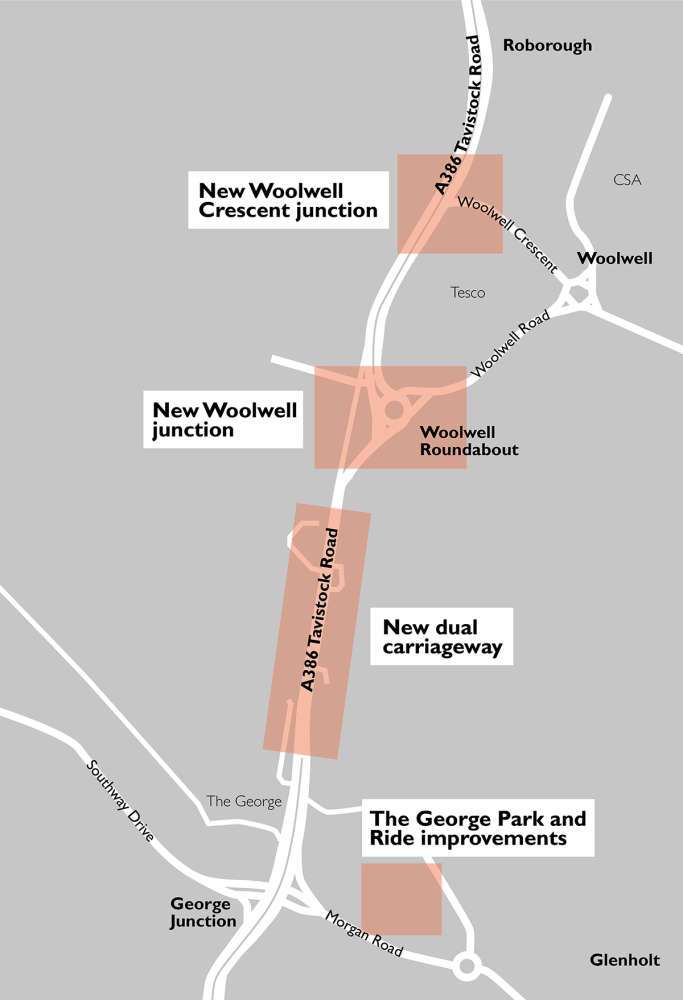
Screw-generator scheme at Tiverton Weir
Plans to use the River Exe to generate hydro-electric power to help Mid Devon become the first zero-carbon local authority in the UK have taken a leap forward. The council's cabinet has unanimously supported progressing to the next stage of the Tiverton Weir element of a hydro-mills project.
The council has been looking at Tiverton Weir's potential to increase the amount of energy generated by the council's existing solar PV array. A 150kW twin Archimedes screw generator system would cost £815,000. Officers will now prepare a planning application, and it could be implemented by March next year.
Cllr Graeme Barnell, cabinet member for planning and economic regeneration, said: “This is an exciting project and has been some time in the gestation. The project will help to attract investment from businesses operating within the green economy, and will help to support other hydro-generation activities being developed.
“For Tiverton it will also create a focal point along Rotary Way, helping to bridge the divide between the recognised town centre and West Exe areas, and it could further lead to additional community focused activities along the riverside, including art projects and summer events. A wider benefit to the project will be the expected biodiversity improvements on the river Exe, with an advanced fish pass and other measures being added to help protect and enhance the river’s ecology.”
Cllr Elizabeth Wainwright said: “This will be a major contribution to the net zero 2030 aim and will put us on the map. We will be the first council to supply all of our energy needs sustainably, and this will open up interest from other funders for the different pieces of the scheme, so there will be a domino and a ripple effect beyond this.”
A report to the meeting added: “The opportunity to develop a hydroelectric scheme at Tiverton Weir will help the Council to meet its carbon reduction objectives and will provide a very publicly accessible renewable development within the local community to show that the climate agenda is taken seriously. The energy generated [could save] the local authority approximately £50,000 per annum on energy bills, and complimenting the existing solar PV system. Excess energy would be sold back to the grid through a power purchase agreement with an energy supplier.”
 Exeter man wins £1 million on scratchcard
Exeter man wins £1 million on scratchcard
 Missing Christmas Day swimmer named
Missing Christmas Day swimmer named
 Two men missing after entering sea
Two men missing after entering sea
 Students take over Radio Exe
Students take over Radio Exe
 Work to start on major Tavistock Road improvements
Work to start on major Tavistock Road improvements
 Last night of the Christmas Proms - REVIEW
Last night of the Christmas Proms - REVIEW
